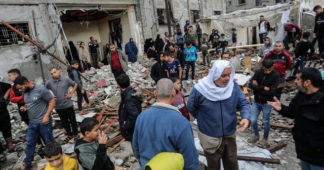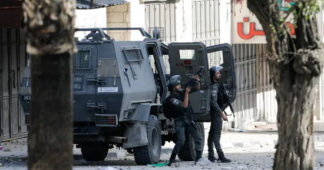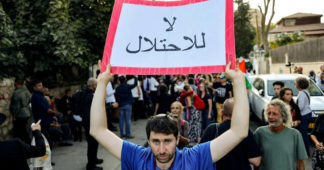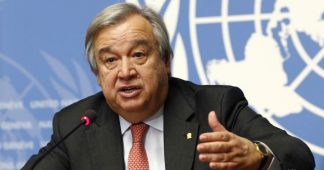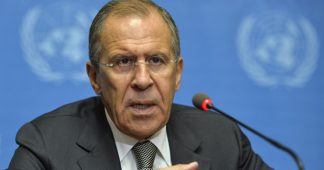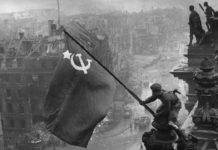Jul 19, 2024
The International Court of Justice has ruled that Israel’s continued presence in the Occupied Palestinian Territory is unlawful and should be brought to an end “as rapidly as possible.”
The Court also ruled by 14 votes to one, that Israel is under an obligation “to immediately cease all new settlement activities and to evacuate all settlers” from the occupied land, Judge Nawaf Salaam, president of the ICJ in The Hague, delivered its non-binding advisory opinion on Friday.
“Israeli settlements in the West Bank and East Jerusalem, and the regime associated with them, have been established and are being maintained in violation of international law,” the 15-judge panel found.
PRESS RELEASE: the #ICJ delivered its Advisory Opinion in respect of the Legal Consequences arising from the Policies and Practices of Israel in the Occupied Palestinian Territory, including East Jerusalem https://t.co/CVnr5gqKDR pic.twitter.com/8Q9EVWHVX7
— CIJ_ICJ (@CIJ_ICJ) July 19, 2024
The Court also concluded that Israel “has the obligation to make reparation for the damage caused to all the natural or legal persons concerned in the Occupied Palestinian Territory.”
It also stated that all states “are under an obligation not to recognize as legal the situation arising from the unlawful presence” of Israel in occupied Palestinian territory “and not to render aid or assistance in maintaining the situation created by the continued presence” of Israel in that territory.
Judge Salam further said that “international organizations, including the United Nations, are under an obligation not to recognize as legal the situation arising from the unlawful presence” of Israel in the occupied territory.
‘Further Action Required’
The United Nations, and especially the General Assembly, which requested the opinion, and the Security Council, “should consider the precise modalities and further action required to bring to an end as rapidly as possible the unlawful presence of the State of Israel in the Occupied Palestinian Territory.”
The advisory opinion follows a request in December 2022 from the UN’s General Assembly on the legal consequences arising from the ongoing violation by Israel of the right of the Palestinian people to self-determination, “including measures aimed at altering the demographic composition, character and status” of Jerusalem.
In addition, how these policies and practices of Israel “affect the legal status of the occupation, and what are the legal consequences that arise for all States
and the United Nations from this status.”
Right to Self-Determination
The Court further observed that the effects of Israel’s policies and practices, and its exercise of sovereignty over certain parts of the Occupied Palestinian Territory, “constitute an obstruction to the exercise by the Palestinian people of its right to self-determination.”
It was also found that the “occupation cannot be used in such a manner as to leave indefinitely the occupied population in a state of suspension and uncertainty, denying them their right to self- determination while integrating parts of their territory into the occupying Power’s own territory.”
Judge Salaam said the court concluded that “a broad array of legislation adopted and measures taken by Israel in its capacity as an occupying Power treat Palestinians differently on grounds specified by international law.”
‘Apartheid’
He emphasized that “this differentiation of treatment cannot be justified,” and added that the Court “is of the view that the régime of comprehensive restrictions imposed by Israel on Palestinians in the Occupied Palestinian Territory constitutes systemic discrimination based on, inter alia, race, religion or ethnic origin.”
Judge Salam added that “A number of participants have argued that Israel’s policies and practices in the Occupied Palestinian Territory amount to segregation or apartheid, in breach of Article 3 of CERD (The Committee on the Elimination of Racial Discrimination).”
Our people deserve much more than that. Our people want to put an end to this occupation. What happened today is a significant step in the direction of ending occupation and attaining the inalienable rights of the Palestinian people, including the right to self-determination,… pic.twitter.com/N5B90ikGKW
— State of Palestine (@Palestine_UN) July 19, 2024
The Palestinian ambassador to the UN Riyad Mansour, welcomed the Court’s “significant” findings.
“Our people want to put an end to this occupation,” Mansour told reporters. “What happened today is a significant step in the direction of ending occupation and attaining the inalienable rights of the Palestinian people including the right to self-determination statehood, and the right of the refugees to return.”
Ongoing Genocide
Israel is currently on trial at the ICJ for a separate case brought by South Africa, accusing Tel Aviv of committing genocide against Palestinians since it began waging a devastating war on Gaza on October 7.
According to Gaza’s Ministry of Health, 38,848 Palestinians have been killed, and 89,459 wounded. Moreover, at least 11,000 people are unaccounted for, presumed dead under the rubble of their homes throughout the Strip.
Israel says that 1,200 soldiers and civilians were killed during the Al-Aqsa Flood Operation on October 7. Israeli media published reports suggesting that many Israelis were killed on that day by ‘friendly fire’.
Palestinian and international organizations say that the majority of those killed and wounded are women and children.
The Israeli war has resulted in an acute famine, mostly in northern Gaza, resulting in the death of many Palestinians, mostly children.
The Israeli aggression has also resulted in the forceful displacement of nearly two million people from all over the Gaza Strip, with the vast majority of the displaced forced into the densely crowded southern city of Rafah near the border with Egypt – in what has become Palestine’s largest mass exodus since the 1948 Nakba.
Later in the war, hundreds of thousands of Palestinians began moving from the south to central Gaza in a constant search for safety.
We remind our readers that publication of articles on our site does not mean that we agree with what is written. Our policy is to publish anything which we consider of interest, so as to assist our readers in forming their opinions. Sometimes we even publish articles with which we totally disagree, since we believe it is important for our readers to be informed on as wide a spectrum of views as possible.
